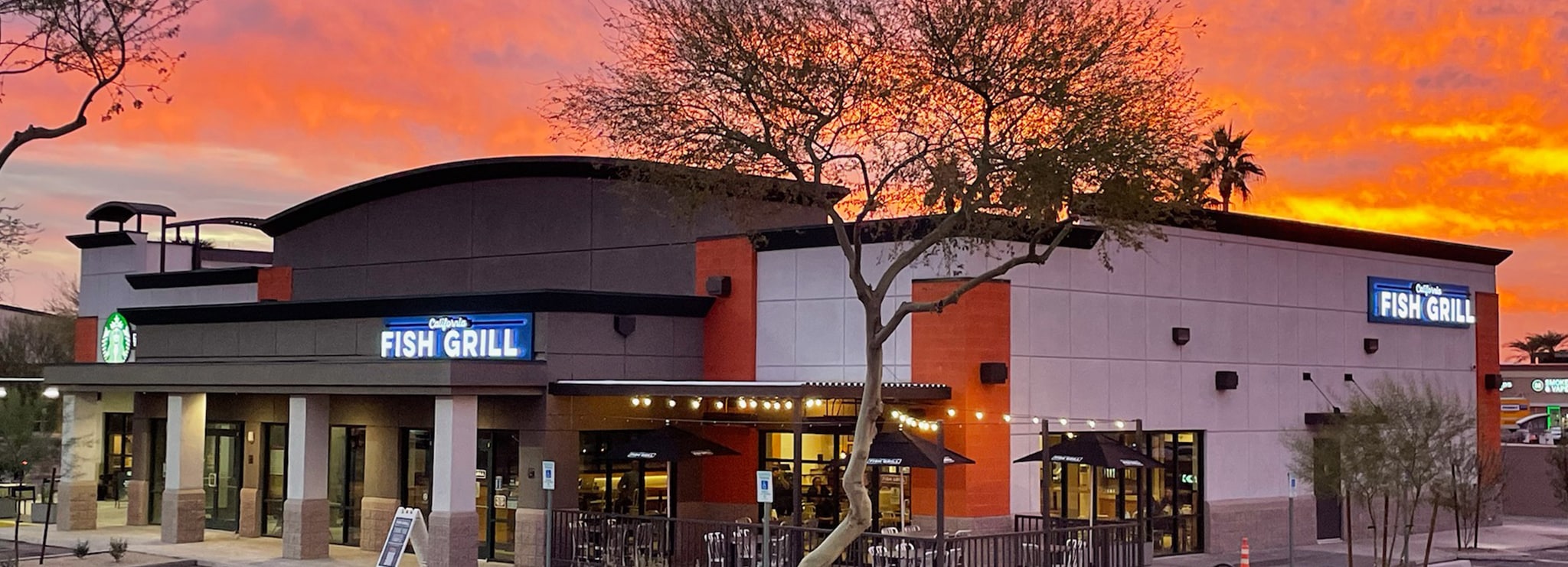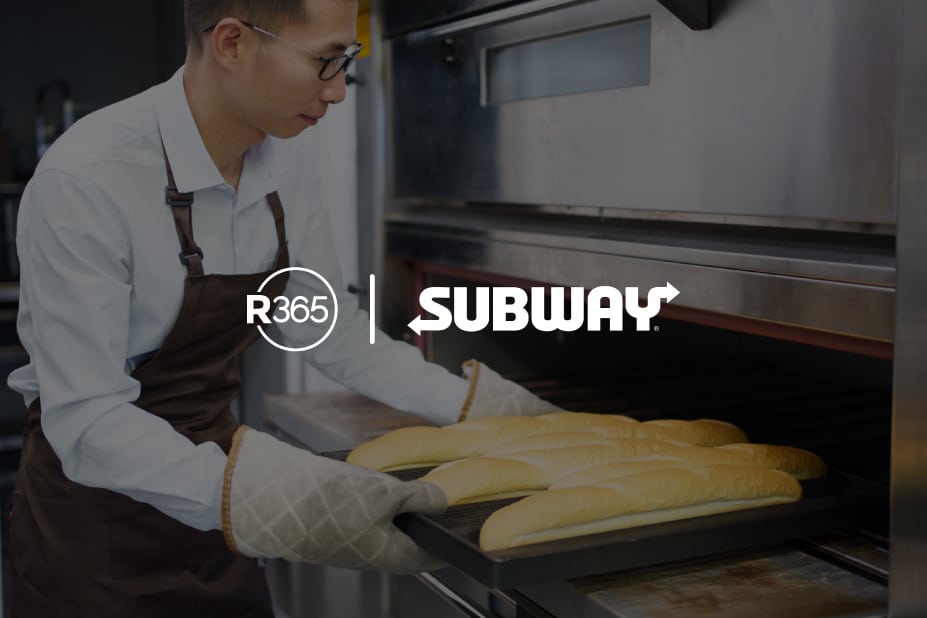Background
California Fish Grill has been preparing delicious, healthy, and sustainable seafood for discriminating restaurant guests since 1998. All of the chain’s 50 locations are committed to not only a great tasting menu, but also serving seafood that is always responsibly sourced and sustainable. California Fish Grill proudly serves wild caught and farm raised seafood that is third party Eco-Certified or rated Best Choice or Good Alternative by the Monterey Bay Aquarium Seafood Watch program, which helps consumers and businesses make choices for a healthy ocean.
With locations throughout California and one location in Las Vegas, the popular seafood chain treats guests to open kitchens where vegetables and herbs are chopped, fish is hand battered, and meals are cooked on the company’s signature flame grill.
In 2015, with eleven locations and growing quickly, California Fish Grill realized its Quickbooks Desktop system was not scalable. Quickbooks was just an accounting system and it didn’t include robust operational tools like detailed inventory tracking, theoretical food cost tracking, and restaurant inventory functionality. In addition, individual stores couldn’t access Quickbooks Desktop, so corporate was required to input invoices instead of decentralizing the task to the store level.
Paul Potvin, now CFO of California Fish Grill, recalls the frustrations of trying to make a similar system work in a previous role. “In the past I had a main accounting system, and then we had a separate accounting operations system for inventories and invoice entry. Those two systems spoke to one another, but they were never in sync,” he recounted. “So we didn’t have one database—stores were presenting weekly flash reports to us that didn’t eventually match up to the accounting system.“
Previously, store operators found the internal reporting process a bit daunting, as data from the Point-of-Sale had to be manually uploaded to a back-office accounting solution before landing on their desks. If there were unexpected variances in sales or missing invoices, operators struggled to reconcile the values upon which their respective performances were evaluated.
Mr. Potvin realized that if California Fish Grill were to scale for growth, the company needed to find an all-in-one system that could streamline operations. The restaurant group needed a solution that could meet both its accounting needs and its restaurant-specific operational challenges.
Solution
Mr. Potvin looked at several possible systems. However, he found that most had too high a cost, or the system didn’t provide an all-in-one solution.
California Fish Grill chose Restaurant365 for a number of reasons. At the top of Mr. Potvin’s list was R365’s ability to track actual vs. theoretical food costs, as well as the streamlined inventory system.
Because Restaurant365 is a restaurant-specific, fully-integrated accounting and inventory solution, it meant that the system was well-suited to California Fish Grill’s business model, and Mr. Potvin could avoid the errors in data reporting that he had experienced previously. “I really wanted to make sure that we were all looking at the same information, all the time,” he stated.
“If there’s one system where everyone can see the numbers,” said IT Vice President Patrick Waiyawaytar, “there’s no need to point fingers or to figure out which data is correct.”
With the support of R365 solutions, California Fish Grill swiftly expanded from 11 to 50 stores across California and Nevada, and their operators evolved into managers.
Results
After implementing Restaurant365 and using actual vs. theoretical (AvT) food cost tracking throughout all of California Fish Grill’s stores, the food cost savings have been “tremendous,” proclaimed Mr. Potvin.
Actual vs. theoretical food costs (AvT) track the difference between what should be spent on food versus what was actually spent during the same period. The AvT report reveals the gaps in plan versus execution, revealing an enormous opportunity to plug leaks in the profit margin. Tracking the AvT difference can help operators evaluate ingredients by category, identify variances in specific items, and resolve errors.
California Fish Grill’s use of AvT reports has resulted in at least 1% in food cost savings across the company, Mr. Potvin reported. For a seafood chain with 50 locations, a 1% savings in food cost can add up to significant dollars. “AvT tracking is part of our culture now, and it has done a tremendous job for us in getting our food costs down and very consistent,” he stated.
California Fish Grill’s use of AvT reports has resulted in at least 1% in food cost savings across the company, Mr. Potvin reported.
The focus on theoretical food costs and reports like profit and loss (P&L) statements has also made store-level managers more accountable, he reported. AvT helps corporate and management stay up to date with what’s going on in all stores, starting conversations when necessary and prompting effective solutions.
The operation teams go over labor and food costs weekly on a store-by-store basis, and meets with corporate to review those numbers monthly, along with the rest of the P&L results. “That review has us constantly challenging what’s going on in the restaurants,” stated Mr. Potvin. “When you start seeing something trending, where suddenly everybody’s showing that they’re growing in a product or they’re short and we’re wasting a product, it starts a conversation.” And because everyone works off of the same numbers, Mr. Potvin said, “we get to the solutions very quickly.”
A focus on reporting was incredibly important as California Fish Grill implemented Restaurant365 in 2016, growing from eleven locations then, to 50 locations today. Restaurant365’s all-in-one accounting and inventory system helped leadership see what was going on at the store level, from management to relationships with vendors.
In addition to providing more transparency with food costs, Restaurant365 has played a role in managing the other part of prime cost: labor. The platform’s labor-accrual method allows operators to “have real labor figures instead of estimates that happen with mid-payroll cycle labor accruals that occur at month end,” reported Mr. Potvin. “Additionally, labor reporting from R365 is used in conjunction with our theoretical labor model to monitor labor weekly.”
The platform’s labor-accrual method allows operators to “have real labor figures instead of estimates that happen with mid-payroll cycle labor accruals that occur at month end,” reported Mr. Potvin.
California Fish Grill also heavily utilizes bank reconciliation and other accounting benefits of Restaurant365. Although he couldn’t assign an exact savings number, Mr. Potvin cited that for 50 restaurants, the ability to have one person do all reconciliations from the bank, multiple credit card companies, and multiple delivery companies, is “priceless.”
Restaurant365’s invoice import system has allowed California Fish Grill’s accounts payable team to shift from being “inputters” to becoming “auditors.” Mr. Potvin noted, “With our reliance on AvT, having accurate inputs is important so we don’t have garbage In, garbage out being reported.”
Mr. Potvin uses multiple out-of-the-box reports from Restaurant365 to inform his role as CFO. Restaurant365’s integration with California Fish Grill’s point-of-sale (POS) system allows him to receive daily sales reports and weekly flash reports “like clockwork.”
He also regularly references reports like the balance sheet, cash flow, daily sales report, P&L, and weekly review by location (looking for discounts and comps). He says he likes that he can modify reports, such as the balance sheet, changing it from a 12-month to 13-month trend so he can easily compare a month this year to the same month last year. He also uses the item cost analysis by location to keep a close eye on cost variations. “On paper supplies, for example, I can compare and see why one location is running 5.2% versus the chain average of 4.8%, while another location on the same sales volume is running, 4.6%. I can compare the two and see what item we’re using that’s more than the other location. So I love that report for that reason,” he commented.
Mr. Potvin also singled out Restaurant365’s menu mix report, which breaks down food cost, margin, and historical sales information to make recommendations about menu opportunities. Currently, California Fish Grill uses the menu mix report to evaluate the performance of new menu items and quarterly limited-time offer items.
Overall, how has Restaurant365 contributed to growth for California Fish Grill, according to Mr. Potvin?
“By helping us control our profitability in holding our operations accountable,” he explained. Restaurant365 has allowed California Fish Grill to efficiently stay on top of P&Ls and maintain consistency from one location to another. He cited that features like matching on the cash side, the ability to import invoices, and the ability to drill down into invoices all create “invaluable controls” for the quick-growing company.
Finally, the transparency of data within Restaurant365´s integrated solutions changed the focus of monthly reviews, IT VP Waiyawaytar said. Previously, these executive meetings were spent evaluating kitchen controls for food portioning in reaction to P&L values, but today these meetings are proactive spaces where managers and operators are collectively focused on how to elevate customer experiences and drive profits.
“Restaurant365 turned our store operators into true store managers, giving each a voice and the confidence needed at the executive table. They understand every single number on the P&L, how they got there, and have the control they need to make improvements.”



